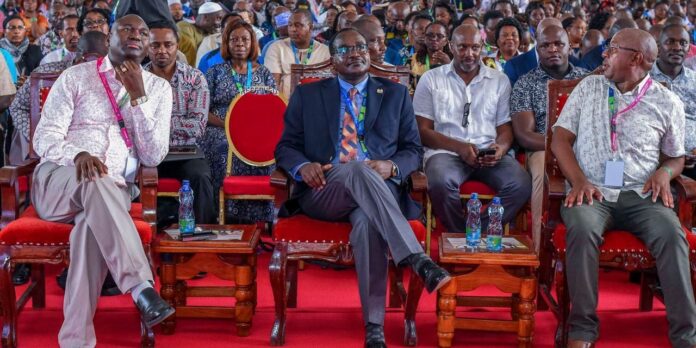Principals Raise Alarm Over Learner Exclusion from Capitation Due to NEMIS Failures; KESSHA Tables Policy Demands.
Over 7,000 public secondary school heads in Kenya have through the Kenya Secondary Schools Heads Association (KESSHA) petitioned the government to introduce a minimum operational funding model for low-enrolment schools and to stop infrastructure related transfers for now to clear outstanding school debts.
During the KESSHA annual conference, the association raised concerns over delayed and inadequate government disbursements, challenges in student data capture for capitation purposes, and stagnant fees amidst rising operational costs.
KESSHA wants capitation and school fees reviewed every three years to match inflation rates and timely release of funds. The association revealed that the current capitation rate of KES 22,244 per learner has not been reviewed for over seven years despite economic pressure.
“For 2025 capitation disbursement, the working population is 3.2 million learners. For Term 1, the expected amount was KES 11,122 but we received KES 8,818 leaving a balance of KES 2,304,” said KESSHA Chairperson Willie Mwangi. “For Term 2, the expected disbursement was 30% of the total, KES 6,673 per learner but we received KES 3,471 with a balance of KES 3,202.”
Mr Mwangi said the cumulative undisbursed amounts for Term 1 and Term 2 is KES 18 billion with KES 7.5 billion pending for Term 1 and KES 10.5 billion for Term 2.
KESSHA also highlighted the systemic issues in the National Education Management Information System (NEMIS) used by the government to determine capitation eligibility. The association said students without birth certificates were not being captured in the NEMIS platform and therefore excluded from funding.
“Activity funds at all levels should be transparently disclosed to help schools bridge financial gaps,” said KESSHA National Secretary Abdi Noor.The association also wants the Ministry of Education (MoE) to provide guidance on how schools can raise funds to bridge the gaps and on the procedure to follow when Form Four students exit institutions with outstanding fees. This follows a Ministry directive that schools should release certificates to all students regardless of the fee arrears.
KESSHA also wants boarding and lunch fees in public secondary schools reviewed to match inflation. The principals also want the Teachers Service Commission (TSC) to expand the existing job group classifications from D5 to D7 and to fast track the promotion of acting principals serving more than six months, especially in Arid and Semi-Arid Land (ASAL) counties.
KESSHA also recommends the TSC and teachers’ unions to formulate a new Collective Bargaining Agreement (CBA) to address emolument issues. Mr Noor wants the gratuity provisions for support staff to be reassessed in light of the current National Social Security Fund (NSSF) contributions.
On curriculum implementation, the principals said they will be flexible and innovative in rolling out senior school pathways. They asked for more capacity for the Kenya Institute of Curriculum Development (KICD) to develop and evaluate curriculum materials on time and for approval of only quality textbooks.
KESSHA also wants teachers retooled to support talent development and will work with financial institutions including the Institute of Certified Public Accountants of Kenya (ICPAK) to train bursars and improve financial management in schools.
In line with national digital transformation, the principals pledged to promote use of clean energy and digital tools in teaching, learning and assessment. The association also said they will support registration of National Identification Cards for learners aged 18 and above.
The principals reiterated their commitment to Ministry of Education policies including full implementation of the electronic Government Procurement (eGP) system to enhance transparency and accountability.
“The new CBA should uplift the salary scales of teachers so that school heads can work with a motivated team,” said KESSHA official Mr Kuria. “Teachers with low pay will always look for other means to make a living, which makes them hard to control.”
The association concluded by asking the government to address all policy and funding issues in a timely and structured manner so that public secondary education can be sustainable across the country.
Principals Raise Alarm Over Learner Exclusion from Capitation Due to NEMIS Failures; KESSHA Tables Policy Demands.



